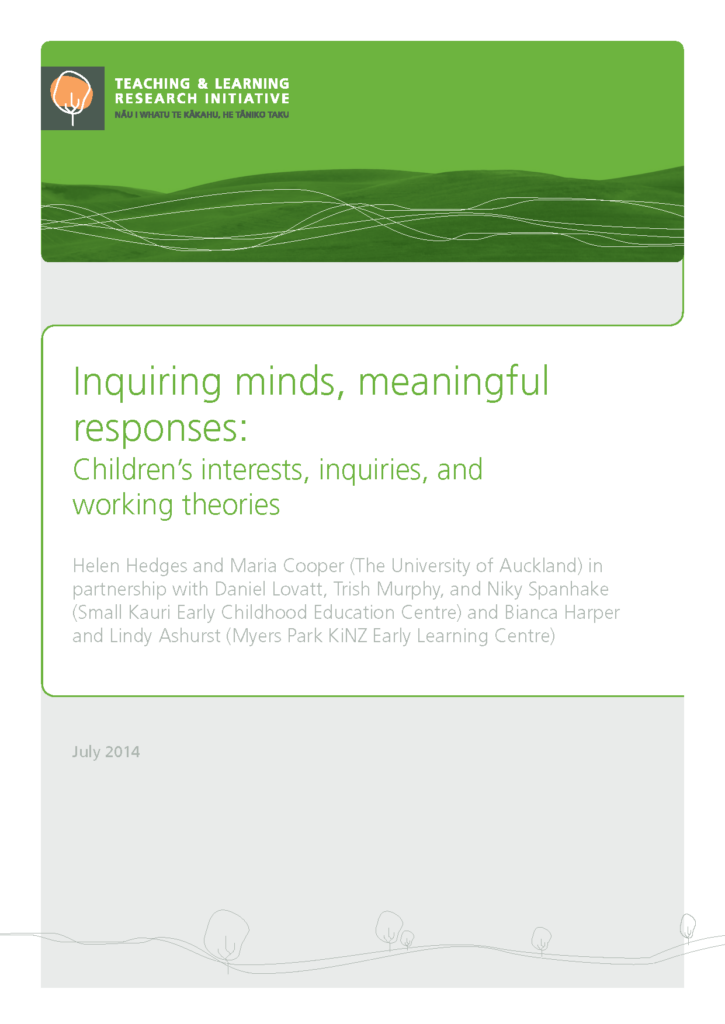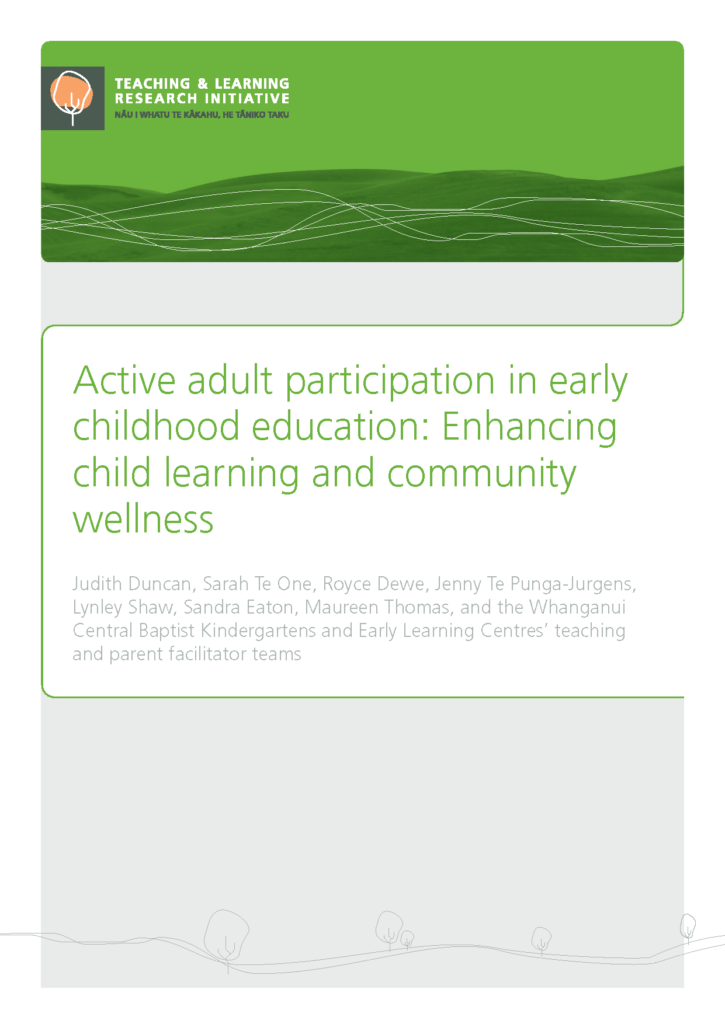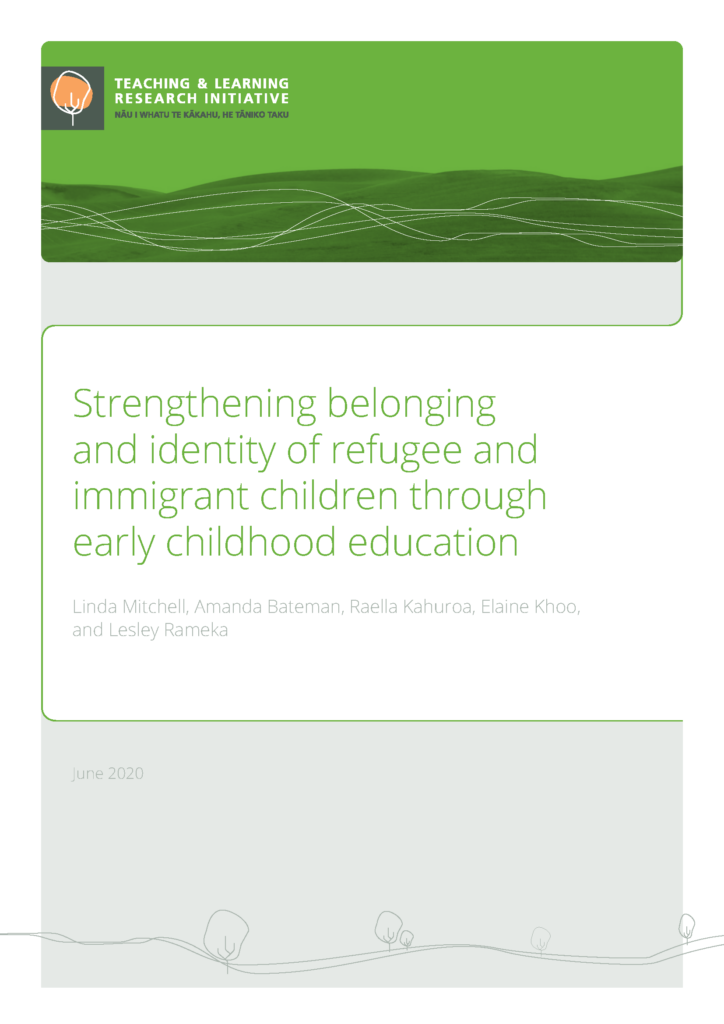Inquiring minds, meaningful responses: Children’s interests, inquiries, and working theories

Introduction: Research rationale and aims In keeping with the spirit, aims, and principles of the Teaching and Learning research Initiative (TLRI) programme, the following whakataukī has guided our research project: Ma te mahi ka mohio, ma te mahi ka marama, ma te mahi ka matatau. Through practice comes knowledge, through knowledge comes understanding, through understanding […]
Moments of wonder, everyday events: Children’s working theories in action
This two-year research project explored children’s working theories in action. We looked at the ways young children expressed their working theories and how these were understood and fostered in Playcentre[1] environments. The findings show ways that children express and develop working theories, how practitioners understand these, and how best to respond to this learning. Key […]
Active adult participation in early childhood education: Enhancing child learning and community wellness

Introduction In our qualitative research project (2010–2012), the team investigated how “ordinary” early childhood centres enacted “extraordinary” pedagogy by including families, wider whānau and communities in the “everyday” of early childhood programmes; that is, within this project, we explored both theoretical constructs and teaching and organisational strategies to increase parent participation and positive learning outcomes […]
Strengthening belonging and identity of refugee and immigrant children through early childhood education

Introduction This project explored the role of early childhood education (ECE) and pedagogical strategies in supporting a sense of belonging and identity for refugee and immigrant children and families in Aotearoa New Zealand. We used a design-based research methodology in four culturally diverse ECE settings to develop and trial theories and strategies about how ECE […]
